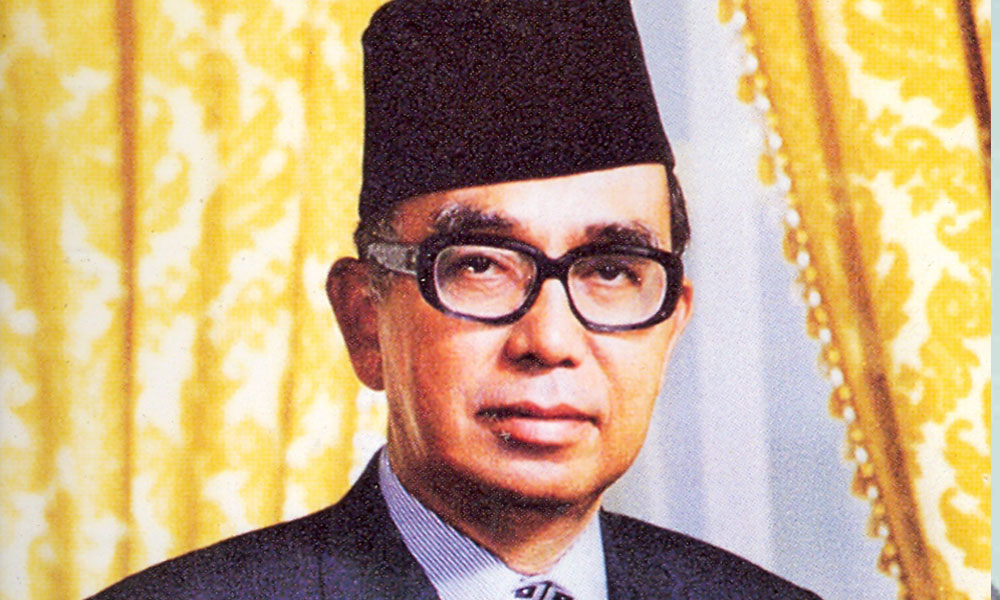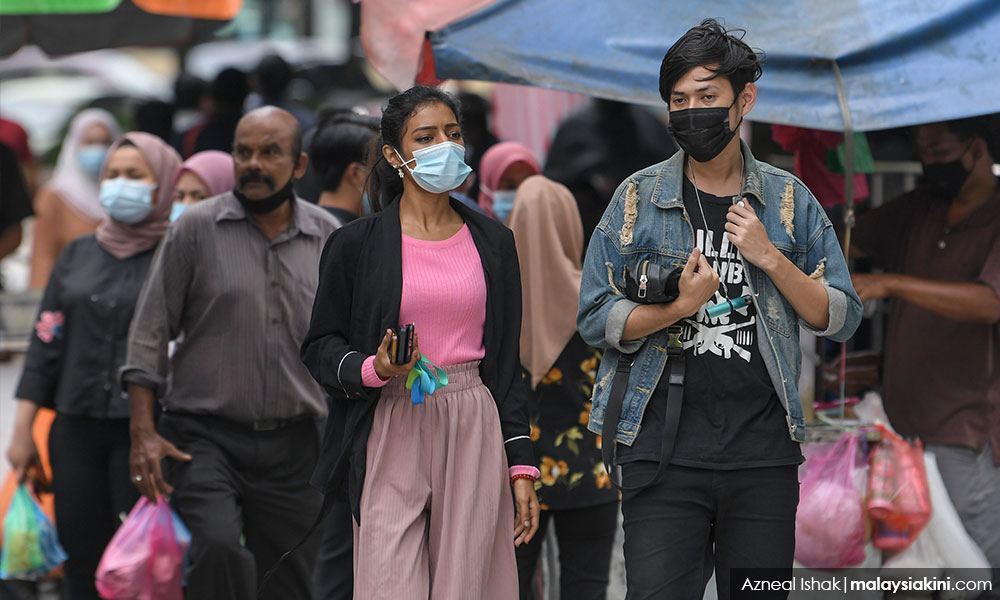You aren’t Malaysian if you can’t speak Malay?

The Chinese Indonesians’ fluency in their national language – and three decades of forced assimilation, including no Imlek (Chinese New Year) celebration – did not protect them from the massacres in May 1998.
Ooi Kok Hin
Not an insignificant segment of society also believes that the Malay language is so intertwined with national identity that if one refuses or is unable to speak the language, one’s citizenship could be revoked.
To be clear, I believe most Malaysians do speak Malay. They just don’t speak proper Malay, which is inadequate to certain quarters’ expectations.
Nothing is new here, as we Malaysians are prone to be trapped in a loop arguing over the same contentious issues over and over again.
Political scientist Wong Chin Huat coined the “1946 Question” in which he asked if can we be different and equal. In other words, can ethnic minorities refuse assimilation and demand citizenship equal to the ethnic majority?
In “The Politics of Chinese Education in Malaya, 1945-1961”, the scholar Tan Liok Ee wrote that Abdul Razak Hussein – the preeminent Malay nationalist – was attacked by his Malay contemporaries for conceding too much on the medium of instruction in schools.

Critics of the Razak Report in the 1950s argued that having schools using different languages would “defeat the aim of undivided loyalty to this country”.
Five decades later, when Pemandu introduced the dual-language programme, they were lambasted as “language traitors” by a coalition objecting to English as a medium of instruction in select schools.
This logic of linking language with loyalty – and hence one’s promiscuity with languages, or ambivalence about the Malay language, raises doubts about one’s allegiance and belonging to the nation – continues to be peddled today, with many pointing to Indonesia and even Singapore as models to be emulated.
Neither Indonesia nor Singapore models
There are justifiable concerns about the lack of fluency in the national language. I don’t dispute that but to argue or insinuate that some people are lesser citizens without language mastery – this logic is beset with problematic assumptions.
If poor command of the Malay language is a “timebomb” as one viral tweet postulated, has multicultural Malaysia truly been less stable than assimilationist Indonesia? The answer is a firm “no”.
I have been in those shoes before, admiring Indonesia for its ability to make its two hundred million citizens speak in one common language.
When I saw Chinese Indonesians speaking to each other in Indonesian over a futsal game, I marvelled. “Bhinneka Tunggal Ika” (the national motto of Indonesia translated as “unity in diversity”).
I still admire Indonesia but no longer think it is more stable or united than Malaysia. How many volatile and violent episodes have occurred in Jakarta and Medan?
The Chinese Indonesians’ fluency in their national language – and three decades of forced assimilation, including no Imlek (Chinese New Year) celebration – did not protect them from the massacres in May 1998.
Indonesia is only to be envied if one refuses to recognise the violence. Indeed, the erasure of violence among certain quarters’ fond recollections of the Indonesian model is glaring.
Then there’s the Singapore model. Another popular tweet reads, “Do we have the guts to ban Chinese schools like Lee Kuan Yew did?”
Many may not realise that forced integration in Singapore is only “successful” because they did it with all aspects of everyday life: schools, housing, elections.
Not only did the ruling government force everyone to go to the same public schools, it enforced mixed racial quotas for HDB public housing and electoral representation via Group Representative Constituency (GRC). You are forced to school, live and politik-ing together.

It won’t work if Malaysia only adopts forced integration for schools. If the Education Ministry were to convert all vernacular schools and Malay-only boarding schools into mainstream public schools, the mastery of the Malay language would improve only marginally because people would still go back to their homes and speak in their community’s language(s).
Malaysians live in segregated communities, whether by class or ethnicity. A forced relocation on a mass scale to implement integration is unthinkable in this age, even more so given our size compared to our southern neighbour’s island.
Then, there’s our politics. With so few mixed seats, and so many racially based political parties competing in monoethnic seats (contrary to some sentiments about the “erosion” of Malay political power, Malay-majority and supermajority seats still command the most shares in our elections), our political parties will not suddenly convert into multiracial parties soon (imagine the outcry if we force them to do so) and we are not going to adopt Singapore’s GRC either.
So neither Indonesia’s forced assimilation nor Singapore’s forced integration will yield magic to resolve Malaysia’s language use and identification anxieties.
Unspoken cost of language wars
To put it crudely then, what can we do to promote the proliferation of Malay language use in multi-ethnic Malaysia? How do we make Malaysians love the national language more?
In “Taming Babel: Language in the Making of Malaysia”, the historian Rachel Leow wrote of how state policies and institutions “pressed forward a monocultural definition of the nation, which was profoundly at odds with Malaysia’s pluri-ethnic reality… it bounds conceptions of ethnicity to language…which requires constant maintenance”.
If one observes keenly, this maintenance is done all the time: the usage of “Allah” by Christians delivering sermons in the Malay language, the outrage over Timah whiskey or nasi kandar babi, just to mention a few.
It’s almost like the conservatives, so-called champions of the Malay language, want the non-Malays to use the language but not at your house of worship and not with your food (if it offends their “sensitivities”).
If one is unwilling to let go of the ownership of the national language and wants to police and dictate its use, even in intimate settings, then championing the language is either half-hearted or contradictory at best.

